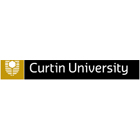Bachelor of Applied Geology
Bachelor of Applied Geology
Geology is the study of the Earth and its resources, and of the natural planetary processes that directly affect people – such as the formation of mineral and energy resources, geological hazards, climate change and environmental protection and management. This is a hands-on, practical course that reflects industry practices. You…
Categories
COURSE DESCRIPTION
Geology is the study of the Earth and its resources, and of the natural planetary processes that directly affect people – such as the formation of mineral and energy resources, geological hazards, climate change and environmental protection and management.
This is a hands-on, practical course that reflects industry practices. You will gain a thorough foundation in theoretical geology with a practical emphasis on mineral, energy and groundwater resources and their environmental management, as well as the sustainable supply of resources for the decarbonising industry – which will qualify you for a range of geology careers.
In your first year you’ll study geology, chemistry, maths, scientific communication and computer skills. Your second year focuses on the theoretical, laboratory and field skills required to understand geological processes.
The first two years of this course are based at Curtin Perth. In your third year, you can study the Applied Geology stream at Curtin Perth or the Mining Geology stream at Curtin Kalgoorlie, and select units to tailor your final year of study. These units emphasise specific applied aspects of geoscience.
Applied Geology
This stream covers the breadth of applied geosciences, including mineral and petroleum exploration and extraction techniques, groundwater resources and environmental geosciences. It is offered at Curtin Perth and Curtin Malaysia.
Mining Geology
This stream combines studies of resource and field geology with mining systems, resource estimation and process mineralogy. The final year of this course is undertaken at Curtin Kalgoorlie.
How this course will make you industry ready
After two years of grounding in the fundamentals of geology, your final year will focus on application in the workplace. Depending on the specialisation you choose, you’ll study minerals, petroleum, groundwater and environmental industries; and complete practical exercises that reflect the activities of industry professionals.
What jobs can the Applied Geology lead to?
Careers
Geologist
Geological engineer
Industries
Environmental geology
Carbon and hydrogen storage
Groundwater extraction
Resources exploration
Mining
Natural hazards and risk analysis
Radioactive waste storage
Research and development
What you’ll learn
Apply fundamental geological principles and concepts in theoretical, practical and vocational situations
Solve mineral and energy exploration, environmental and sustainability problems through creative thinking and the extrapolation, interpolation and analysis of geoscience information
Collate, synthesise, and visualise geoscientific data sets using digital technologies, and communicate this geological information to industry and community stakeholders concisely and accurately using written, visual, and verbal means appropriate to the situation.
Recognise the finite nature of Earth resources, and the need to manage and mitigate social and environmental impacts of resource exploration and extraction and geohazards
Recognise the need for sustainable use of Earth resources, and value environmental, indigenous and other community perspectives on geological activities
Collaborate with professionals across the minerals and energy value chain, prioritise safety, and recognise the corporate and ethical need for accurate exploration results
REQUIREMENTS
Students from different countries should have qualifications equivalent to Australian Year 12 and a scaled mark of at least 50 in English, Literature, or English as an Additional Language or Dialect.
IELTS (International English Language Testing System) – Listening, Reading, Writing, and Speaking – 6.0; Overall band score 6.0; TOEFL Score: 79 (overall); Reading 13; Listening 13; Speaking 18; Writing 21; Pearson Test of English – Listening, Reading, Writing, and Speaking – 50; Overall band score 58; TOEFL (Test of English as a Foreign Language) and PBT (Paper Based Test) – 570 and 4.5 in TWE; C1 Advanced Formerly known as Cambridge English: Advanced (CAE) 176 with 169 in Reading, Writing, Listening and Speaking. C2 Proficiency Formerly known as Cambridge English: Proficiency (CPE) 190 with 176 in Reading, Writing, Listening and Speaking.
EDUCATIONAL INSTITUTION
Curtin University is Western Australia’s largest and most culturally diverse university with Australia’s third largest international student population. Around 60,000 students from more than 130 countries study a Curtin degree, at locations including Perth, Margaret River, Kalgoorlie, Sydney, Malaysia and Singapore. Our cultural diversity adds a rich and valuable dimension to the campus atmosphere, preparing all graduates to live and work effectively in an increasingly global environment. We offer a range of industry-aligned undergraduate and postgraduate courses in business, humanities, health, engineering and related sciences. We also have a long-standing focus on Aboriginal and Torres Strait Islander education and culture, supported by our Centre for Aboriginal Studies.Curtin is widely recognised for its practical research that is focused on solving timely, real-world problems. In recent years our research activity has grown significantly, driving our rapid rise up the international university rankings.As a university that never settles, we will continue to develop existing partnerships and establish new ones in areas relevant to our research and teaching.

